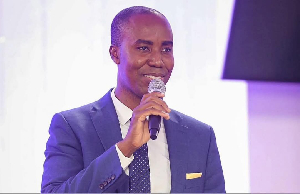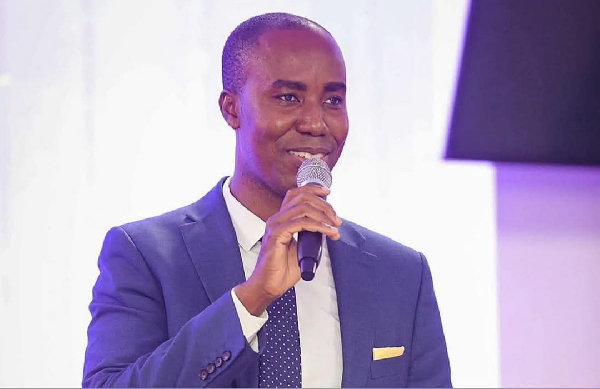 Kwabena Adu Boahene is the former Director-General of National Signals Bureau
Kwabena Adu Boahene is the former Director-General of National Signals Bureau
The Attorney General and Minister of Justice, Dr Dominic Ayine; and Samuel Atta Akyea, legal counsel for Kwabena Adu Boahene, the former Director-General of the National Signals Bureau, are expected to appear before the Accra High Court on Friday, May 2, 2025, for an in-camera consequential trial meeting.
The meeting, sanctioned by the presiding judge, John Eugene Nyadu Nyante, is expected to make a determination on the matter involving Kwabena Adu Boahene, following a request submitted by Attorney General Dr Dominic Ayine, JoyNews reports.
During a court hearing on Wednesday, April 30, 2025, the Attorney General urged that Kwabena Adu Boahene be remanded into custody and his current bail be revoked.
Dr Dominic Ayine cited evidence suggesting that the accused was attempting to interfere with potential witnesses in the ongoing criminal trial.
If the meeting proceeds successfully, it will determine whether or not Kwabena Adu Boahene should be remanded into prison custody, based on the strength of the evidence Dr Ayine is expected to present during the scheduled in-camera session.
A consequential trial refers to a trial, or part of a trial, which addresses issues arising after a judgment has been rendered.
These issues typically involve the practical steps needed to implement or enforce the original judgment, such as determining costs, permissions to appeal, or other actions related to the main outcome of the case.
Meanwhile, Kwabena Adu Boahene has officially been charged with 11 counts of stealing, including the alleged transfer of GH¢49 million (approximately $7 million) from the bureau’s account to his personal account, among other offenses.
The suit, which was filed at the High Court in Accra, also had three other accused persons, including the wife of Adu-Boahene – Angela Adjei Boateng; his company, Advantage Solutions Limited; and a banker, Mildred Donkor.
The charges filed against the accused persons included: stealing, contrary to Section 124(1) of the Criminal Offences Act, 1960 (Act 29); conspiracy to steal, contrary to Sections 23(1) and 124(1) of the Criminal Offences Act, 1960; and defrauding by false pretences, contrary to Section 131(1) of the Criminal Offences Act, 1960 (Act 29).
Some of the other charges against them are: willfully causing financial loss to the state, contrary to Section 179A(3)(a) of the Criminal Offences Act, 1960 (Act 29); using public office for profit, contrary to Section 179C(a) of the Criminal Offences Act, 1960 (Act 29); and collaboration to commit a crime, to wit, using public office for profit, contrary to Section 179C(b) of the Criminal Offences Act, 1960 (Act 29).
MAG/AE
Meanwhile, watch why Kennedy Agyapong has withdrawn from NPP’s ‘Thank You Tour’


